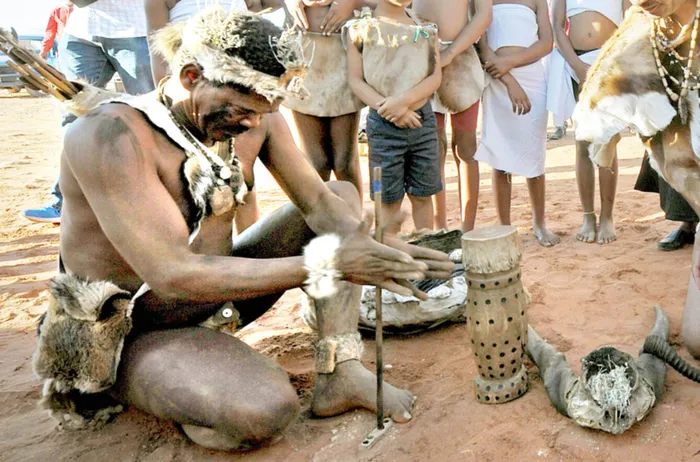How language shapes belonging in South Africa's diverse heritage

Ouma Griet Jantjies, one of the last 5 remaining spekers of the N/uu laguage, is laid to rest in a traditional ceremony in Upington. Piet Arendse starts the ceremony by starting a fire the traditional way. Picture Jeffrey Abrahams. Reporter Sandiso Phaliso. Celebrating South Africa’s rich linguistic heritage, from isiZulu to Afrikaans, Sesotho to English, languages remain at the heart of identity and belonging during Heritage Month.
Image: File
As South Africa celebrates Heritage Month, the nation is once again reminded that its identity is carried not only in traditions, rituals and customs, but also in the words people speak every day.
With 12 official languages, the country’s diversity is embedded in the rhythm of its speech, from isiZulu greetings that echo through bustling taxi ranks, to Afrikaans lullabies sung in farmhouses, to Sesotho proverbs passed down across generations.
Language in South Africa is more than communication; it is a marker of belonging and a bridge between communities. For many, the first language they speak at home becomes their first introduction to identity, culture and history.
At the same time, the shared ability to switch between tongues, a common feature in South African life, highlights the adaptability and interconnectedness of its people.
“Our languages are living proof of our diversity,” says a cultural commentator.
“They tell stories of where we come from, and when we use them, we are not just speaking, we are carrying heritage forward.”
But the country’s multilingualism also presents challenges. Some languages face the risk of being overshadowed in education, business, and digital spaces. Experts argue that protecting all languages equally is vital, not only for cultural preservation but also for ensuring that every South African feels seen and heard.
For many young people, identity is found in the mix. In township streets, English merges with isiXhosa slang, while in urban hubs, Afrikaans blends with isiZulu expressions. This fluidity demonstrates that South African identity is not fixed but constantly evolving.
As Heritage Month unfolds, the spotlight on languages reminds citizens that belonging is not defined by one dominant tongue, but by the ability to embrace many.
In the words of one elder, “When we speak to each other in our own languages, we do more than share words, we recognise each other’s humanity.”
South Africa’s languages remain the heartbeat of its heritage, affirming that to be South African is to belong to a nation that speaks in many voices, yet tells one story.
IOL News
Related Topics: